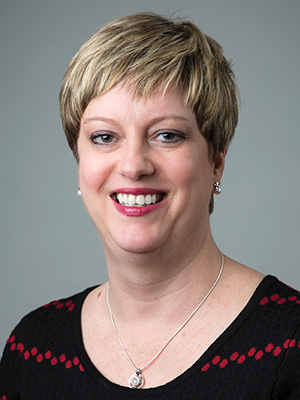 Dr. Beth Hodges
Dr. Beth HodgesDr. Beth Hodges is a family practice and palliative care/hospice physician in Asheboro, N.C., as well as a part-time medical director for HealthTeam Advantage, HealthTeamAdvantage.com. She lives in Asheboro with her husband, three teenagers, three dogs, one cat, and 21 goldfish.
As I write this, my husband, three teens, three dogs, a cat, and 21, no make that 24, goldfish are sheltering in place. It is the Spring/Summer, and soon to be fall, of COVID-19.
As North Carolina starts reopening in phases, I thought it would be good to talk about some of the mental health issues you may be experiencing because of the pandemic; share some of the resources that are available; and remind you that you’re not alone.
Probably the most important thing to remember is the last thing—you’re not alone, even if you live by yourself. We are all going through this together. All our lives have changed in varying degrees and you may be experiencing anxiety now or you may start to once things get back to “normal”.
There are understandable reactions—like continuing to avoid handshakes or hugs; reacting strongly if someone coughs or sneezes in your vicinity; being more likely to seek medical treatment at the first sign of a fever; or even having anxiety about gatherings and longing for the days of wearing face coverings once it’s no longer deemed necessary.
To a certain extent, these are normal reactions and we have to work through these fears and feelings individually. If you find, however, that friends and family are starting to comment on your behavior, or your anxiety is keeping you from enjoying life, you may need to seek assistance from a healthcare professional. You might need counseling or even a brief course of medication to help keep your fear and anxiety at a healthy level.
You can combat this type of stress and anxiety by taking care of your body, eating healthy meals, staying active, taking breaks from the news and social media, engaging (even if just virtually) with friends and family, getting plenty of sleep, and doing things you enjoy.
There are also abnormal reactions. Some abnormal reactions may be:
- Obsessive Compulsive Disorder (OCD): characterized by repetitive, unnecessary behaviors, such as washing your hands more than 100 times daily, or cleaning surfaces over and over in the need to obliterate potential germs.
- Situational depression: isolating yourself from contact with others and with no desire to engage in routine social or work activities.
- Generalized anxiety: a persistent, overriding fear that you’ll contract Covid-19 or another infectious disease, to the point that you’re unable to engage in public events or return to your normal routine.
- Panic attacks: discrete episodes of severe anxiety, racing pulse, shortness of breath, lasting 2-20 minutes.
If any of these describes you, you should contact your healthcare provider or in the case of an emergency call 911.
There are resources available to help you deal with the stress and anxiety.
- The N.C. Department of Health and Human Services’ Hope 4 NC at 855-587-3463 (a 24/7 hot line)
- Cone Health’s 24-hour HelpLine 336-832-9700 or 800-711-2635 (mental health/substance abuse issues)
- UNC Health Care Crisis and Assessment Services: 984-974-4800
- Disaster Distress Helpline 800-985-5990, or text TalkWithUs to 66746
- National Domestic Violence Hotline 800-799-7233 and TTY 800-787-3224
Some health insurance providers offer behavioral health visits with the telehealth service, which would allow you to visit with a therapist online or over the phone. Regardless of what level of care you need, make sure to take care of your mental health as well. Do not let Covid-19 take any more from you than it already has.

